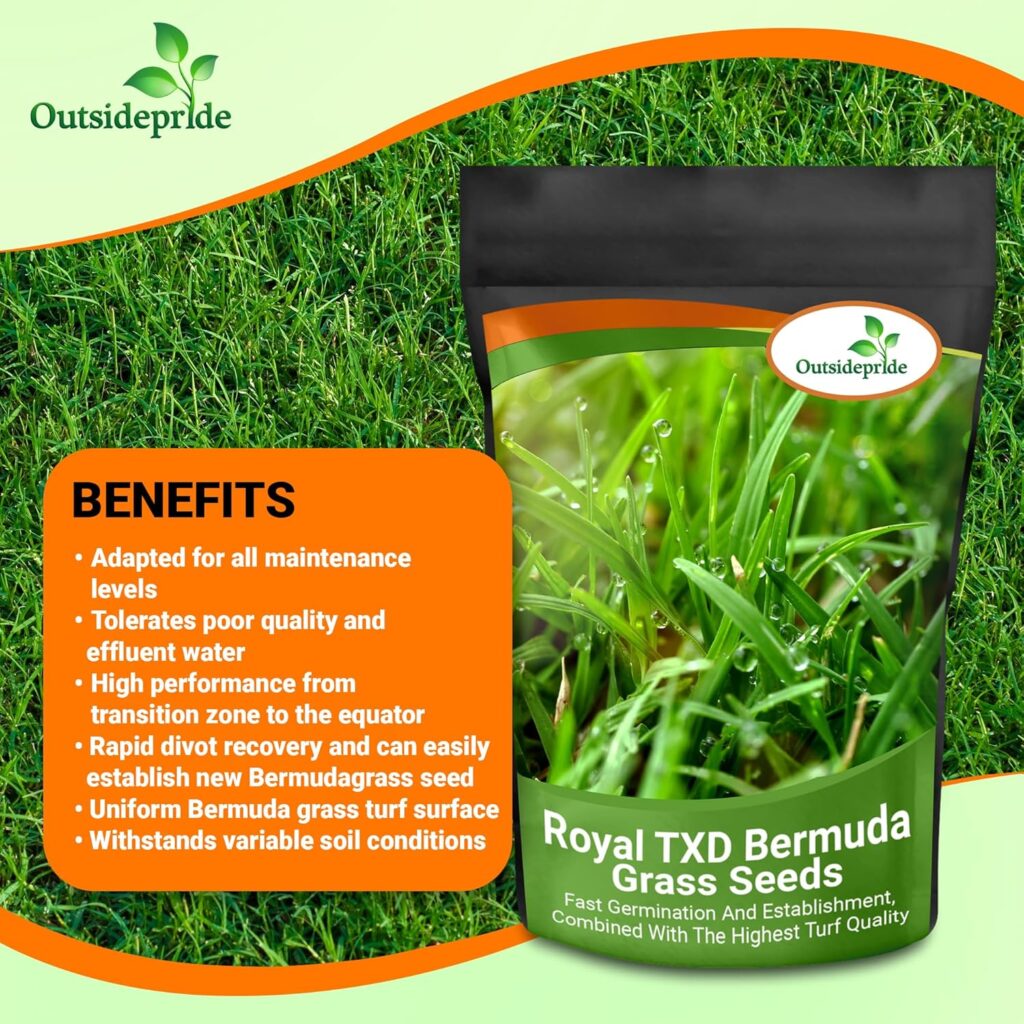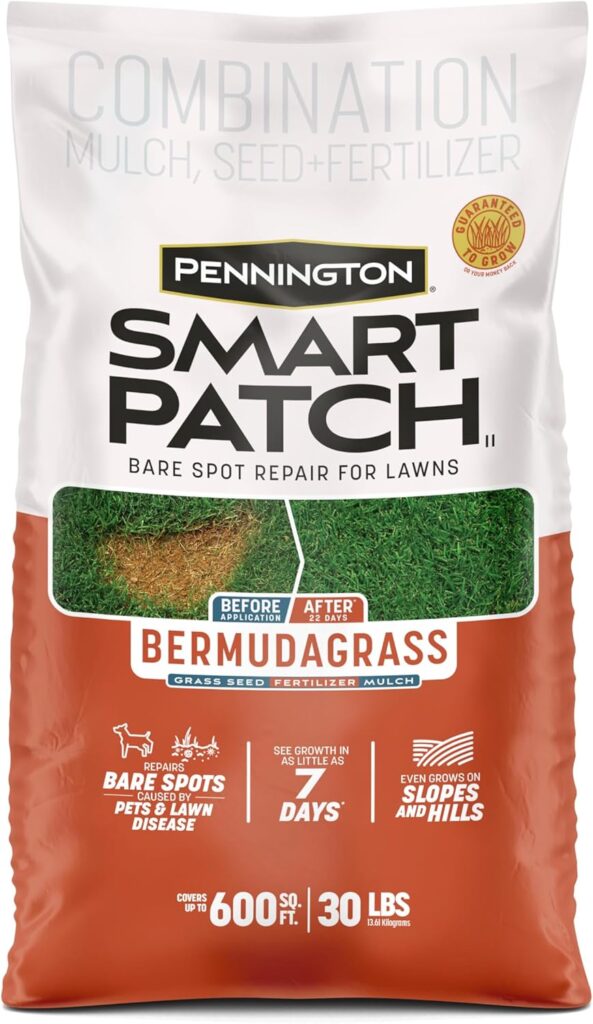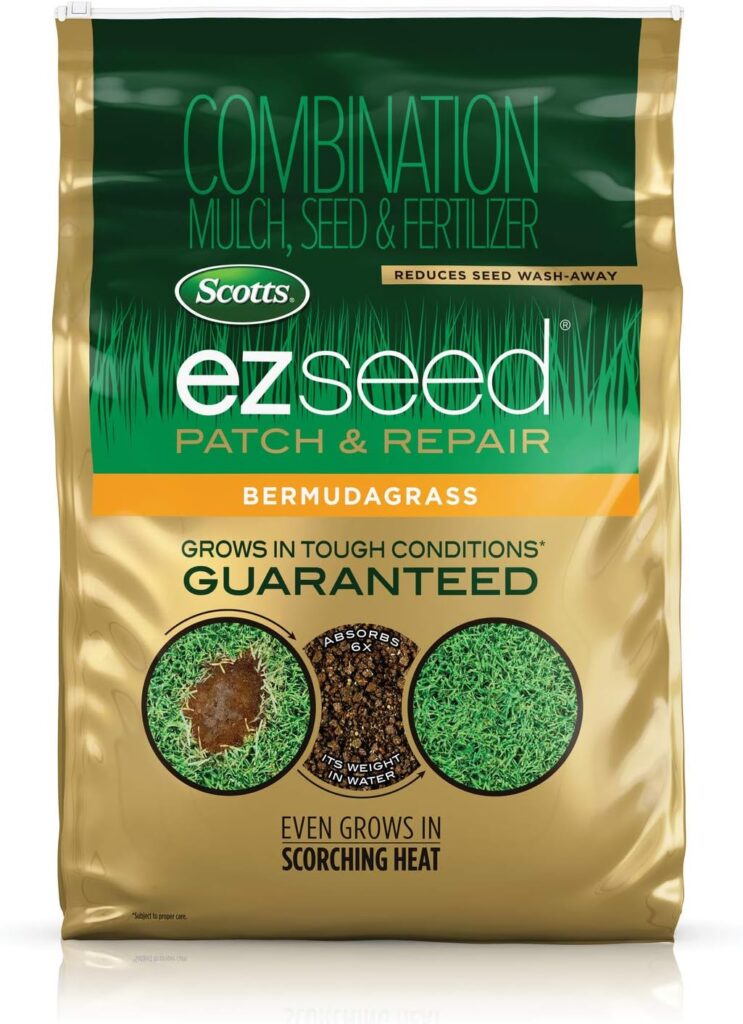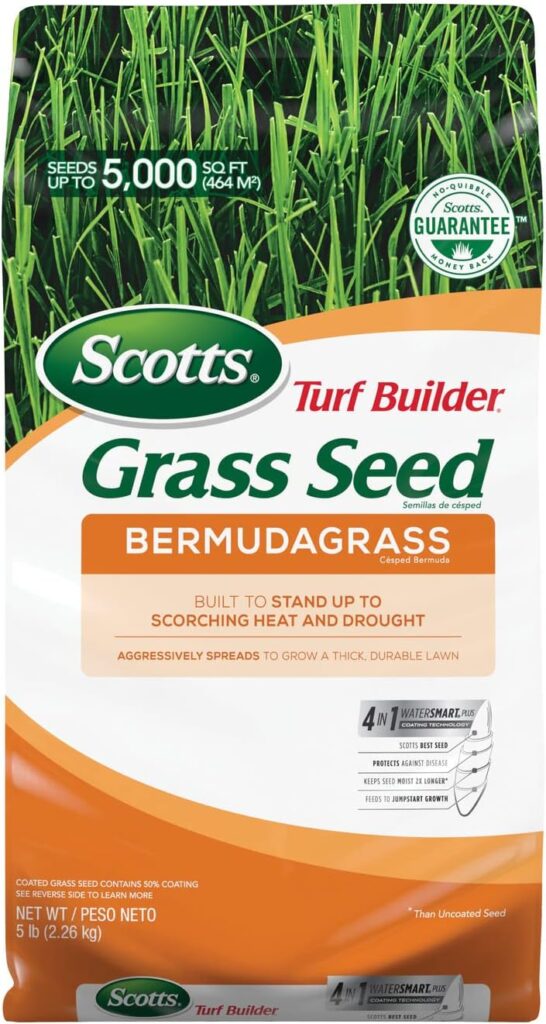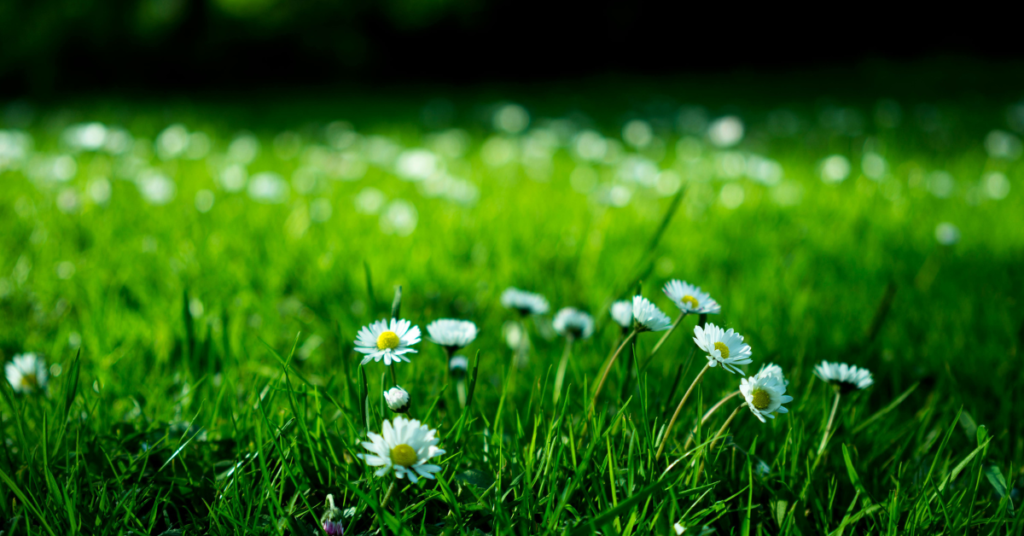
If you’re thinking about growing a strong, easy-to-maintain lawn, Bermuda grass seed is a wonderful choice. It’s popular for lawns, sports fields, and even golf courses because it can handle tough weather and heavy use, while still looking healthy and green. However, before you plant it, there are some important things to know about how Bermuda grass works, how to care for it, and whether it’s the best fit for your yard.
In this guide, we’ll explain everything you need to know about Bermuda grass in the simplest way possible. Whether you’re a homeowner, gardener, or just curious about lawns, this article will help you understand it!
What is Bermuda Grass?
Bermuda grass, also called Cynodon dactylon, is a type of warm-season grass. This means it grows best in hot, sunny weather. Bermuda grass originally comes from Africa but has spread all over the world. You’ll find it in places like the southern United States, Australia, and parts of Asia. It’s known for being tough, fast-growing, and very resilient, which is why it’s used in places like backyards, playgrounds, and sports fields.
The grass has thin blades that are light to dark green. It grows quickly, especially when it’s warm outside, and it forms a thick carpet-like lawn. Bermuda grass is perfect for areas that need to handle a lot of foot traffic, like playgrounds or fields where people run and play a lot. Here you can find Bermuda grass seed.
Here You Can Find Some Bermuda grass Seed
Why Choose Bermuda Grass seed?
There are many reasons why people pick Bermuda grass seed for their lawns. Here are some key benefits:
- Durability: Bermuda grass is one of the strongest types of grass you can choose. It can take a lot of wear and tear, making it perfect for families with kids or pets who play outside a lot.
- Heat and Drought Tolerance: If you live in a hot and dry area, Bermuda grass seed is a great option. It can survive with little water, so even in long, dry summers, it stays green and healthy.
- Fast Growth: Bermuda grass spreads quickly through both stolons (which are runners above the ground) and rhizomes (which are stems below the ground). This means it can cover bare patches in your yard very fast, creating a thick, lush lawn in no time.
- Low Maintenance: While it does need some care, Bermuda grass doesn’t require as much attention as other types of grass. Once it’s fully grown, its almost done because it can handle tough weather without needing too much help.
Types of Bermuda Grass
There are different types of Bermuda grass, and each type has its own strengths. Here are some common varieties:
- Common Bermuda: This is the original type, known for being tough and fast-growing. It’s often used in parks and athletic fields because it can recover quickly from heavy use.
- Hybrid Bermuda: This variety is specially bred to have finer blades and a softer texture. It’s often used on golf courses and in high-end lawns where the grass’s appearance is important.
- Dwarf Bermuda: This type has smaller, finer blades and grows slower than other varieties. It’s often used in landscaping where a softer, more delicate look is desired.
How to Plant Bermuda Grass or Bermuda grass seed?
If you’re planning to plant Bermuda grass, you can do it in two main ways: by using seeds or by laying sod. Let’s look at each method.
Planting Bermuda Grass by Seed
Planting Bermuda grass seed is the most affordable way to start a Bermuda grass lawn. Here’s how you can do it:
- Choose the Right Time: The best time to plant Bermuda grass seed is in late spring or early summer when the soil is warm, around 65-70°F. The seeds need warm temperatures to grow properly.
- Prepare the Soil: Before planting, clear the area of rocks, weeds, and debris. Loosen the top layer of the soil using a rake or tiller to give the seeds a good place to take root.
- Spread the Seeds: Use a broadcast spreader to evenly spread the seeds across the area. You’ll need about 1 to 2 pounds of seed per 1,000 square feet.
- Cover the Seeds: Lightly rake the area to cover the seeds with a thin layer of soil. This helps protect them and makes it easier for them to grow.
- Water Regularly: Water the area lightly but frequently until the grass starts to grow. Once the grass is established, you can reduce the amount of water you give it.
Planting Bermuda Grass by Sod
If you want an instant lawn, using sod is the way to go. Here’s how you can lay Bermuda sod:
- Prepare the Soil: Just like planting by Bermuda grass seed, clear the area of debris and loosen the top layer of soil.
- Lay the Sod: Lay the sod in straight rows, making sure the edges are tight against each other. Stagger the joints like bricks to avoid gaps.
- Water: After laying the sod, water it thoroughly. Keep the sod moist for a few weeks so the roots can grow into the soil.
- Avoid Foot Traffic: Try not to walk on the new sod for a few weeks to let it take root properly.
Caring for Bermuda Grass
Once your Bermuda grass is planted by Bermuda grass seed or by Sod, to make your grass healthy and green you have to take care for it . Here are some simple tips:
Mowing
Bermuda grass seed grows fast, so it needs to be mowed regularly. Keep it at about 1 to 2 inches tall. If you let it grow too long, it can become messy and form a layer of dead grass, known as thatch.
During the growing season, which is late spring through early fall, mow your Bermuda grass every 5 to 7 days. In the winter, when the grass goes dormant and turns brown, you can mow it less often.
Watering
Although Bermuda grass can handle drought, it still needs water to stay healthy. Water your lawn deeply but less frequently. Aim to water about 1 inch per week, depending on the weather. If the grass starts looking dry or turns a blue-gray color, that’s a sign it needs water.
Fertilizing
Bermuda grass loves nitrogen, so fertilizing it regularly will help keep it green and lush. Apply a nitrogen-rich fertilizer about once a month during the growing season.
Weed Control
Bermuda grass is strong, but weeds can still be a problem. Use a pre-emergent herbicide in the spring to prevent weeds from sprouting. If weeds do show up, you can use a post-emergent herbicide to get rid of them.
Common Problems with Bermuda Grass
While Bermuda grass is tough, it does have a few common problems you should be aware of:
- Thatch: Thatch is a layer of dead grass and roots that can build up on the soil. If it gets too thick, it can block water and nutrients from reaching the grass. You can remove thatch by raking or using a dethatching machine.
- Brown Patch: This is a fungal disease that causes circular brown spots in your lawn. It’s more likely to occur in humid conditions. To prevent it, don’t overwater and make sure your lawn has good air circulation.
- Invasiveness: Bermuda grass can spread into areas where you don’t want it, like flower beds. To control it, use edging or apply herbicides in areas where you don’t want the grass to grow.
Is Bermuda Grass seed Right for Your Lawn?
Now that you know more about Bermuda grass seed, how can you tell if it’s the right choice for your yard? Here are a few things to consider:
- Climate: Bermuda grass thrives in hot, sunny climates. If you live in a warm area, it’s a great choice. But if your region is cooler, you might want to choose a different type of grass.
- Sunlight: Bermuda grass seed needs full sunlight to grow well. If your yard is shady, Bermuda grass may not thrive as well.
- Lawn Use: If your lawn will get a lot of foot traffic, like from kids or pets playing, Bermuda grass is a great choice because it’s tough and durable.
Conclusion
Bermuda grass is an excellent choice if you want a strong, low-maintenance lawn. Bermuda grass seed grows well in hot, sunny climates and can handle a lot of wear, which makes it perfect for families, sports fields, and parks. Whether you plant it by Bermuda grass seed or sod, Bermuda grass can give you a beautiful green lawn that lasts for years.
By following the tips in this guide, you can grow and maintain a healthy Bermuda grass lawn. Whether you’re an experienced gardener or just getting started, Bermuda grass is sure to give you great results with a little care and attention!
To get more reviews visit Homezens

